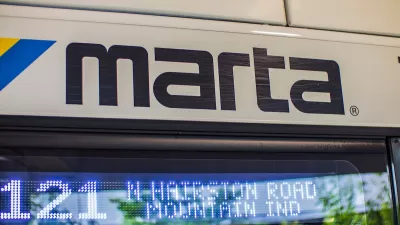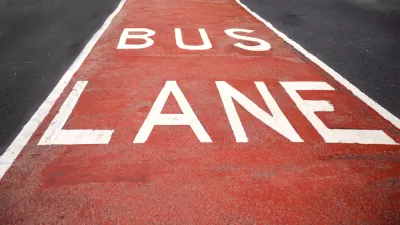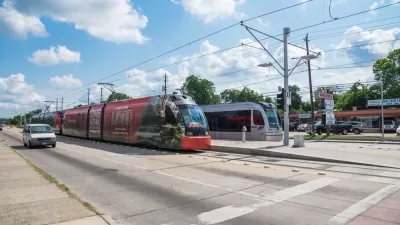With the region's traffic getting increasingly worse, and little funding in the pipeline, Washington D.C. transit officials have proposed a plan to develop new bus-only lanes on the shoulders of highways.
"Washington area transportation officials are pushing a plan to run buses on the shoulders of the region's highways and other major roads, allowing the vehicles to drive around congestion and go to the head of the line at traffic signals.
With prospects for increased transportation funding fading, regional leaders are looking for alternative -- read: cheap -- solutions for easing congestion.
"It's about as low cost a thing as you can do," said Chris Zimmerman, chairman of the Metro board and the Northern Virginia Transportation Authority. Zimmerman is proposing a 100-mile system of shoulder lanes, the same length as the Metrorail system.
Metro General Manager John B. Catoe, who was credited with innovations when he ran the Los Angeles bus system, is meeting with top transportation officials in Maryland and Virginia this week to push shoulder use and other bus improvements.
With Washington commuters mired in the second-worst traffic in the nation, area leaders are increasingly open to new, even radical, ideas for getting people across the region, including extensive tolling, better timing of traffic signals and using every inch of existing pavement, including highway shoulders. "
FULL STORY: For Buses, Wheels To the Shoulders?

Maui's Vacation Rental Debate Turns Ugly
Verbal attacks, misinformation campaigns and fistfights plague a high-stakes debate to convert thousands of vacation rentals into long-term housing.

Planetizen Federal Action Tracker
A weekly monitor of how Trump’s orders and actions are impacting planners and planning in America.

In Urban Planning, AI Prompting Could be the New Design Thinking
Creativity has long been key to great urban design. What if we see AI as our new creative partner?

Massachusetts Budget Helps Close MBTA Budget Gap
The budget signed by Gov. Maura Healey includes $470 million in MBTA funding for the next fiscal year.

Milwaukee Launches Vision Zero Plan
Seven years after the city signed its Complete Streets Policy, the city is doubling down on its efforts to eliminate traffic deaths.

Portland Raises Parking Fees to Pay for Street Maintenance
The city is struggling to bridge a massive budget gap at the Bureau of Transportation, which largely depleted its reserves during the Civd-19 pandemic.
Urban Design for Planners 1: Software Tools
This six-course series explores essential urban design concepts using open source software and equips planners with the tools they need to participate fully in the urban design process.
Planning for Universal Design
Learn the tools for implementing Universal Design in planning regulations.
Gallatin County Department of Planning & Community Development
Heyer Gruel & Associates PA
JM Goldson LLC
City of Camden Redevelopment Agency
City of Astoria
Transportation Research & Education Center (TREC) at Portland State University
Jefferson Parish Government
Camden Redevelopment Agency
City of Claremont





























